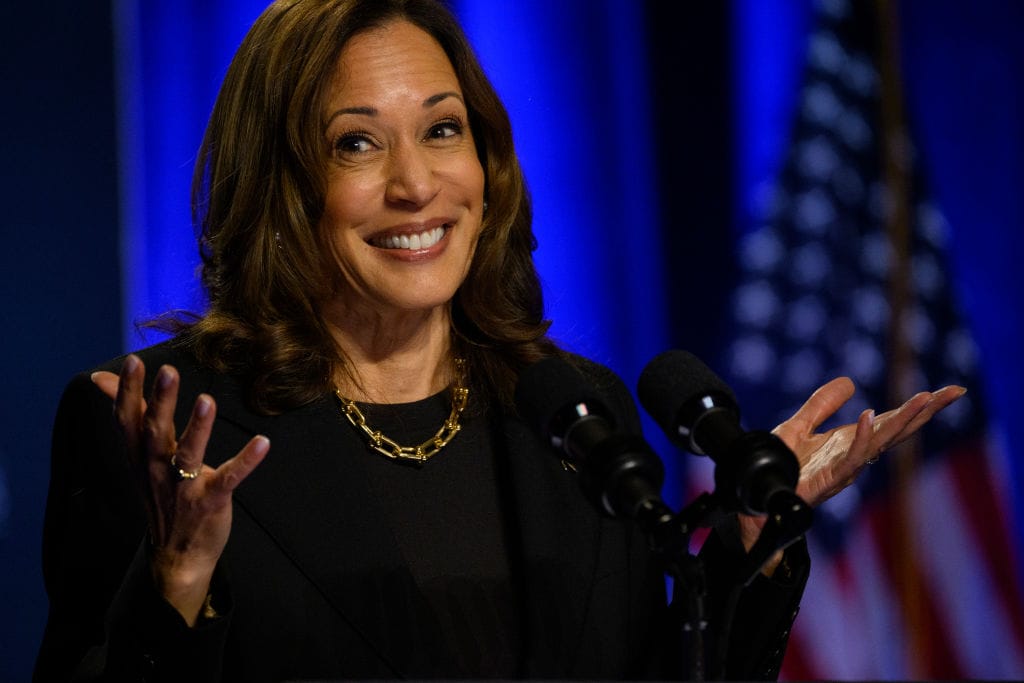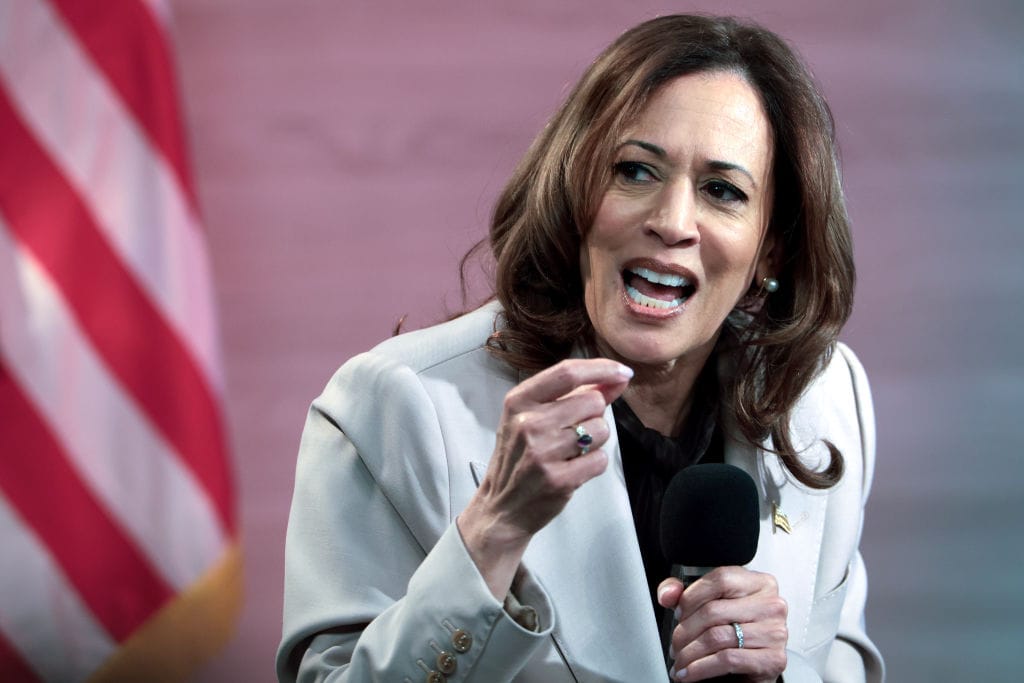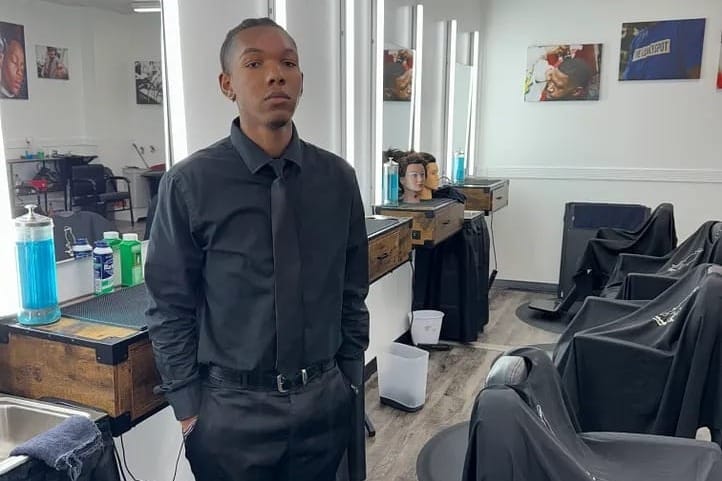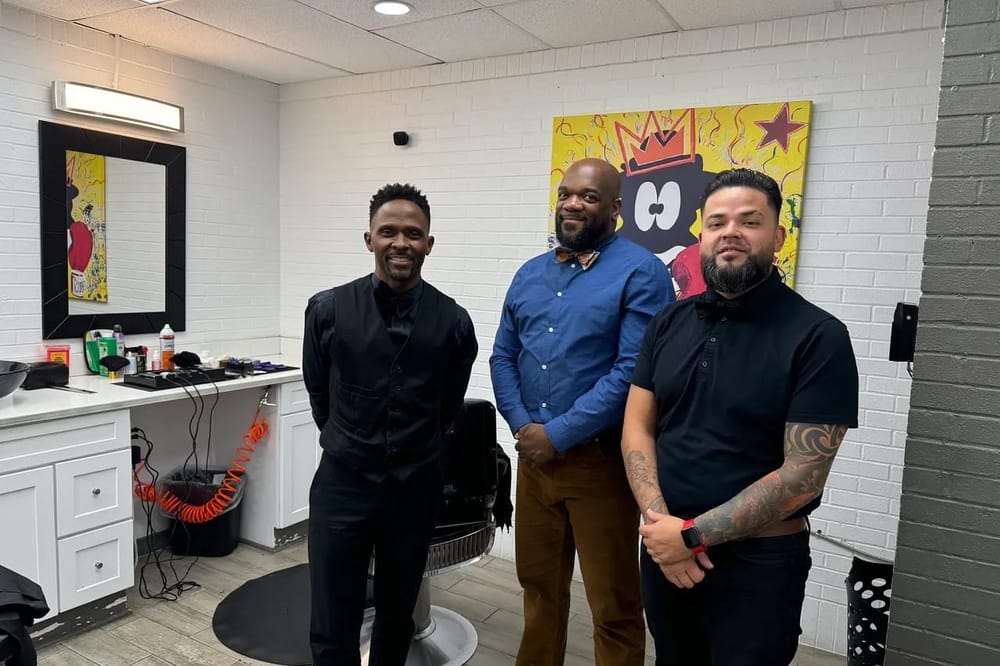In the Uber that took me to the No Grease Barber School in Charlotte, North Carolina, on Tuesday, October 1, I kept reading the latest polls on the presidential campaign. These polls focused on swing states, which will decide the race between Vice President Kamala Harris and former President Donald Trump.
I was particularly focused on North Carolina, as Harris is betting big on this state and its 16 electoral votes. It is true that if she wins the Tar Heel state on November 5, the road to 270 electoral votes needed to carry the White House will be easier for her. The Democrats have won North Carolina only once, in 2008, in the last ten elections. Her bold bet is based on the changing demographics of the state, with a more diverse population and a Black community that makes up 20.5% of the total population of 10.4 million, according to the 2020 U.S. Census. Activists argue that the Census does not count all Black people who are many more than the official figures show.
I was particularly taken aback by a recent Marist College poll which showed that 13% of Black people here say that they support Trump, which still leaves 87% who will vote for Harris. But if you look closely, 13% is a good number for Trump because it is six points more than the 7% that he received in 2020 from this loyal electoral base for the Democrats, according to a CNN exit poll. The former president, who won North Carolina in 2020 by a margin of only 1.34% against Joe Biden, would give anything for this 13%.
Black men may be the reason why Trump is so high (in relative terms) with the Black vote, experts say. Is the Trump Black vote really on the rise? Are the polls wrong, as a Black friend in New York said to me in frustration? Are pollsters exaggerating because there is a need for someone to blame, in the event that the Democratic candidate loses in November, as many Black friends have said to me? Or does the 13% (some polls go as high as 20% of Black men supporting Trump) a way for Black men to protest and send a message? Do Black men feel so marginalized, without a vision for the future, that they tell themselves that choosing Trump, known for his racist statements and tropes, will change nothing? Why are Black men not motivated for such a consequential election?

A lot was going through my mind, as my Uber driver was driving me, on this overcast morning, from my hotel in Charlotte, NC, to the No Grease Barber School, which was located less than 25 minutes away. I did not know that the next hour and the following days would draw a reality that would erase all my assumptions and would introduce a new political equation for the future. It would risk, if the Democrats do not realize what is at stake, tipping the electoral balance for years to come.
“Sir, are you looking for something?” a young man asked me when he saw me appear inside the school building out of nowhere. Several pairs of eyes fell on me, bewildered and surprised.
And rightly so, since rather than taking the main entrance, I had gone inside through the back door. The small group seemed to be on a break. They were all dressed in black. I guessed that it must be their school uniform.
“I am looking for Mr. Johnson, Damian Johnson,” I replied.
“Hey, he’s inside. Go straight and make a left, you’ll find him there,” the same young man told me politely, pointing with his hand. The others had not stopped staring at me.
Damian Johnson, 51, and his twin brother Jermaine, are the founders of the barber school, the same name also given to their chain of barbershops (13 as of now) in North Carolina, South Carolina, Maryland and Georgia. The brothers are also about to launch a business in South Africa.
As I walked in, I could feel the pairs of eyes on my back. The back door I used opened onto a large space virtually divided in two: on the right, a square space where hairdressing stations were installed. At the back, a large space with hairdressing stations and the entrance door, and next to it a counter with a cash register. An office was on the left of where I entered, while another room was on the far end.
The young people inside looked at me questioningly. One asked if I wanted a haircut (it was a $8 haircut on that day.) I replied no, shaking my head and told him that I wanted to see Damian.
His colleague indicated, with a hand gesture, that Johnson was in the small office. A large table was in the middle of the big space with stools all around it. Some students had clients. As I walked towards the office, I noticed the diversity in the ranks of the students. There was certainly a majority of men, Black, Hispanic and White, but there were also a few women.
“We’re open to anybody who wants to come,” Johnson said. “We have a lot of second-chance people, from 18 to 50. We have all the pronouns.”
The atmosphere was both studious and relaxed. From time to time, one could hear the sound of a clipper or a vacuum cleaner, and at times, an exchange between a patron and the apprentice barber.
“They thought they would come in here to learn how to cut hair, but they learn life skills. They learn family skills. They learn how to just be better men and better women,” Johnson told me.
After stating to him the topic of our conversation, I mentioned the polls and waited for his reaction. In just 48 hours in Charlotte, none of the Black men I had spoken to (from the hotel handyman to my table neighbor at the Black Uptown York Southend restaurant) seemed surprised that Trump was resonating with young Black people, who are part of the iPhone generation.
“Trump speaks their language. He’s an entertainer, and most young Black men, most young people in America understand entertainment,” Johnson explained, adding “he’s very, very, very skillful at stirring the emotions of people. So, he’s done a really good job at that, and young Black men like to be entertained, whether it’s truths or lies, as long as it’s entertainment. Trump has done a really good job at that.”
But beyond that, the support of some Black men for Trump or the lack of enthusiasm of most Black men for Harris is not, he explained to me, a sign of apathy, or lack of interest in this campaign as some pundits are saying.
It is a sign, he said, that something deeper is going on, which the pundits and the media have not yet grasped. More and more Black men he knows want some kind of a new social contract, or a new deal, based on specific economic policies for Black and Brown men, he told me. They are sitting at the negotiating table, waiting for the two candidates, Trump and Harris, to join them. As in any negotiation, you have to come with proposals that will capture the interest of the other party. Black men are at the table and waiting. They have their vote. It is up to both candidates to show their hand so that the negotiation can begin, Johnson told me.

“The campaigns haven’t really spoken to the everyday Black man,” said Johnson, whose barbershops are located in states with large populations of Black folks. “So, Black men are on the fence a little bit. I don’t know if there’s ever been a candidate who has actually spoken to the Black man.”
He continued:
“We need laws and policies, specifically written for Black America, that address the economic situation that we have. There’s a genuine concern about the economic gap between the Black community and the rest of the country. This gap exists because of how America was founded, and it was founded on slavery, on the backs of our ancestors. So, until they speak directly to us, until they start dealing with that, they won’t win us over.”
I asked him to be specific.
“We’re American Black men, and we’re saying, here is our negotiating position: What are we getting for our vote? We’re not just here to get you into office. We want something in return. You haven’t been clear. What is the return on our investment? We’re looking for a return on our investment for our vote,” Johnson said. “If she [Kamala Harris] wins, and we don’t get anything after that, what is the point?”
“Listen, I got a Black wife, Black daughters. I’m Black, Black, Black. I love Black. I’m for Black, but for my vote, we want to talk about reparations. We want to talk about our economic situation here in this country. We could deal with crime, we could deal with education, we could deal with healthcare, if we got support. Not assistance, but investment. This is a capitalist country. It’s built on investment. It’s not built on healthcare. No, it’s built on capitalism. So, we want our needs to be addressed specifically for us as Black men. Black people, period.”
The apprentices were watching us. Some of them kept walking past us. We were sitting on a bench, right next to the door through which I entered. They were mostly watching Johnson, as if they wanted to make sure he didn’t forget anything. Some wanted to observe his interaction with a journalist, which reminded me of what he said about them, learning about communicating and life skills.
Listening to Johnson and reading the silent approval of the dozens of young apprentices, I realized that the issue was never that some Black men were indifferent. It is quite the opposite: They have learned from past electoral disappointments and are holding the Democrats, for whom they have historically been a significant and loyal voting bloc, accountable for once. They want change; change in how they are viewed and treated by the Democratic leadership. They want their votes to be earned. They didn’t sell out. They are being served a dish without being presented with a menu or being asked what they would like to eat.
“The pandemic exposed a lot of America’s excuses when it comes to addressing things like economic support specifically for Black people,” Johnson said. “When the pandemic came, it seemed like they [the government] opened up the floodgates to support the entire world. But when Black people are asking for what is owed to them for what happened in this country in the past, they are never able to get real results. So now, we Black men, we see you. We see you America. America, you’ve been exposed.”
For him, if America was really interested in the problems of Black men and the Black community in general, politicians would have taken economic measures without any hesitation to compensate them for the devastation caused by slavery and racial discrimination. With the pandemic, America proved that, according to Johnson, it could sign checks or print money when it deemed it necessary.
“America, when you want to write the check, you will write the check. And now, it’s hard to ignore what we’ve seen America do. We’re not asking for anything that our ancestors and our forefathers haven’t earned. We’ve been a part of America since the days it was founded. So, we’re not someone who just got here. We’ve always been here. No policies, no laws have been directed towards our economic issues,” Johnson argued.
It’s a lesson in pragmatism, coming after decades of voting for the Democrats, without question. Johnson told me that he has two daughters, ages 24 and 21, who, he said, are “very excited” to vote for the symbol of the first Black woman president. He said that he understands the significance of a Harris victory, but “in the end, after November 5, I’m going to go to work the next day, and I’m going to keep applying the same principles that got me to where I am. And I will deal with whoever’s in office.”
Johnson has not decided for whom he is going to vote, but he has been encouraging Black people, especially Black men to register to vote.
“I really don’t follow the campaign,” Mac, 22, one of the students at the No Grease Barber School, told me while cutting my hair. He is Latino and will be graduating in early 2025. “No matter who wins, my mother told me that I pay when I am asked to pay,” said Mac, who is going to vote but didn’t know for whom.

I thanked Johnson for his time and left. Two days later, I visited Lucky Spot Leadership and Barber Academy, a rival of No Grease.
Cyrus, 19, had already put away most of his equipment. He seemed shy, as I observed when Dana Sidberry, the public relations officer, introduced me. When it comes to politics and the presidential campaign, this young Black man is swinging between two positions: he cares and he doesn’t care.
“I just came out of school. I’m more focused on starting my life,” he told me. “I mean, I’m not really paying attention to election like that. I’ll see some things on social media. I’ll see some things on the news on TV. Yeah, but a lot of people my age are not really paying attention.”
He said he recognized that a lot of policies affect Black men, but “me being 19, I don’t have a business. I’ve never really worked a corporate job. I don’t have kids. I don’t have anything.”
At the same time, he said that he will vote and is leaning now “towards Harris,” because of the Biden administration’s student loan cancellation plan, the right for abortion for women and Project 2025, a right-wing plan for what Trump could do if he won.
“I feel like Black men are at a disadvantage. This is nothing new. That’s something I’ve been seeing my whole life, something I’ve been reading about my whole life,” said Cyrus, who joined the school founded by Shaun Corbett, an alumnus of No Grease, who now operates several barbershops in North Carolina with one, Lucky Spot Barbershop, located inside a Walmart Supercenter here.
“My life is better now [that four years ago],” said Derek Nash, who was having his hair cut by Corbett, a station across Cyrus, when I asked him if his life had improved. “My child ended up having student debt. And she doesn’t have that now, so because I actually cosigned on one of her debts, like that was automatically forgiven. So, I was very, very thankful for that.”
As a union worker at Charlotte Airport, the 43-year-old Black father added that the Biden-Harris administration’s support for unions is also something that speaks to him, but there are Trump’s policies, such as the use of Title 42 during the COVID-19 pandemic, which also appeal to him. This policy allowed the Border Patrol to turn back thousands of migrants at the border with Mexico. Nash applauded that policy, because, he said, he had several friends that had overdosed “on drugs, thinking that they’re taking one thing and they were actually taking something else.”
He will vote for Harris.
My time and my conversations at the two barber schools made me understand that the Democrats, unless they make a sudden leap to tailor their policies towards Black people, risk losing a part of a voting bloc that has been loyal for decades. This is not something new. In the last eight years, they lost a huge part of the working class to Trump and the Republicans.
On the evening of November 5, Democrats will win the Black vote, mainly because Harris is at the top of the ticket and Black women are still loyal to them. But they will be mistaken to think that the Black community will continue to vote Democrat. After 2024, the Republicans will really have a chance to compete for the votes of Black men who are willing to listen to all sides. In the end, they will take the best offer.
This post originally appeared on Medium and is edited and republished with author's permission. Read more of Luc Olinga's work on Medium.


